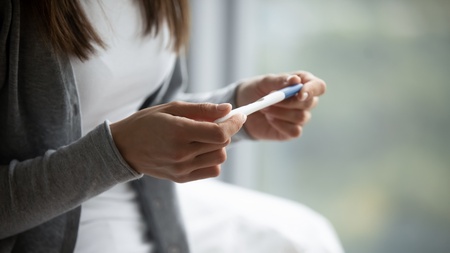Volunteers are being sought for a study investigating whether weight loss can improve couples' chances of conceiving a baby.
Being overweight can often be linked to fertility problems affecting both partners and causes issues such as irregular menstrual cycles and a lack of ovulation in women and lower sperm quality and quantity in men. Although fertility treatment is funded by the NHS, couples are excluded if the woman trying to conceive does not meet the weight requirement for treatment with a body mass index (BMI) of 30 or under.
Although fertility clinics recommend weight loss, losing weight is challenging for many and there is currently no structured support in place to help couples who find themselves denied treatment.
Open to women between the ages of 18-40 with a BMI between 30 and 40, and partners aged over 18, the WELCOME (WEight Loss for Couples Seeking Fertility TreatMEnt) study will encourage participants to adopt a healthier lifestyle and offer couples access to a six-month weight loss programme.
PhD student Emma Hunter is leading the study and said: “One in seven couples in the UK experiences fertility difficulties and our study is open to those who have been trying to conceive for at least 12 months. We understand that weight loss can be challenging, especially without additional support, which is why two of our study groups will be offered a weight loss programme that will help them to make positive and sustainable lifestyle changes.
“Losing weight, establishing healthy eating patterns and being more active not only benefits our health by reducing the risk of heart attack, stroke and type 2 diabetes, but we hope our research will show it can also improve couples’ chances of conceiving a baby.”
All volunteers will be provided with a physical activity tracker and two of the groups will be offered vouchers for Slimming World. Participants will meet virtually with the research team twice and be asked to track their weight and physical activity levels for weekly reports.
Professor Abha Maheshwari, Director of the Aberdeen Fertility Centre said: “Research suggests that women who reported receiving support were more likely to lose weight compared to those who were unsupported and so we hope that this study will allow women to not only reduce their weight but also increase their chances of conceiving a baby naturally or becoming eligible for fertility treatment.
“This is the first time a couple-based weight loss study has been conducted within a fertility context in the UK and this research could not only provide support to the women trying to conceive, but it may also have a positive impact on the reproductive health of their partner and ultimately increase their fertility.”
Volunteers interested in taking part should contact the WELCOME study team by emailing welcomestudy@abdn.ac.uk.


